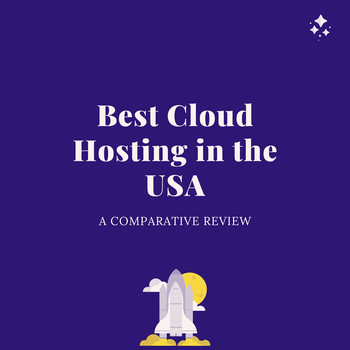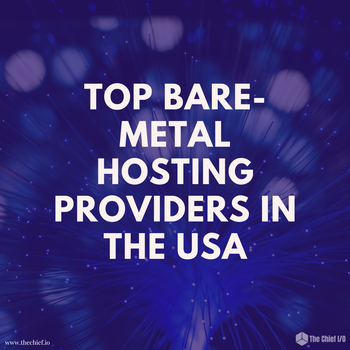AWS declare the availability of Etherum on Amazon Managed Blockchain
Smart contracts for automating tasks on Blockchain
TL;DR
Amazon Web Services (AWS), a subsidiary of the global technology firm Amazon, announced recently that Ethereum is now available on its Amazon Managed Blockchain service. On the Amazon Managed Blockchain, users can now set up Ethereum nodes and join the public Ethereum main network.

Key Facts
The newly Amazon Managed Blockchain developed by Amazon Web Services is set to improve the availability of customers' Ethereum infrastructure by monitoring node stability, replacing unhealthy nodes, and automating Ethereum software upgrades.
According to the official site, AWS users will be able to provision Ethereum nodes in minutes, connect to the public Ethereum main network, and test networks like Rinkeby and Ropsten.
Amazon Managed Blockchain offers customers secure networking through Ethereum's open-source APIs. Aside from that, Amazon Managed Blockchain offers services like node management, Ethereum software update automation, and many more.
Through its scalable and completely controlled Ethereum service, developers will create smart contracts and monitoring tools.
Details
Customers find it difficult and time-consuming to run and maintain their Ethereum infrastructure while developing their Ethereum-based applications. Data reliability due to out-of-sync nodes, data storage scaling issues, and time-sensitive Ethereum software updates are major concerns.
In contribution to Defi applications, customers developing analytical products such as smart contract monitoring tools and fraud detection apps will benefit from this scalable, highly accessible, and completely managed Ethereum service on Amazon Managed Blockchain.
However, Amazon Managed Blockchain is designed to make joining public networks or creating and managing scalable private networks using the common open-source platforms Hyperledger Fabric and Ethereum easier. Hyperledger operates by bringing together peers directly involved in a transaction, with only their ledgers being changed.
This breakthrough would help Amazon Managed Blockchain remove the time and effort needed to set up a network or join one already up and running. It scales automatically to meet the needs of thousands of applications processing millions of transactions.
Managed Blockchain makes it simple to control and maintain the blockchain network. It keeps track of your certificates and makes it easy to invite new people to join the network.
Managed AWS Ethereum Blockchain service is now available in these AWS regions: US East (N. Virginia), Asia Pacific (Singapore), Asia Pacific (Tokyo), Asia Pacific (Seoul), Europe (Ireland), and Europe (London).
As made known on the official website of Amazon, the pricing for Amazon Managed Blockchain for Ethereum is pragmatically listed below;
On-Demand peer node pricing
You can easily scale infrastructure up or down to meet your application's demands with Amazon Managed Blockchain, which removes the overhead of manually provisioning hardware. You pay for the nodes you build with Amazon Managed Blockchain peer node pricing. You pay by the second, with a minimum of one minute.
Peer node storage
Ethereum peer nodes keep track of all of the network's transactions. Your peer node storage automatically scales with your needs when you use Amazon Managed Blockchain. Storage on peer nodes is billed in GB per month increments.
Requests pricing
A request is a call to your node's Ethereum API that transfers data between Ethereum networks. A retailer, for example, can monitor the provenance of rare collectibles by storing their business transactions on Ethereum networks and using API calls. You can read and write transactions, retrieve blocks, fetch logs, and subscribe to real-time events using Ethereum APIs.
A pricing example
AWS shares this example:
You are an events company that is interested in joining the Ethereum main network to record and track event tickets. Your application requires you to provision two c5.large nodes for high availability.
Each node has a 300GB ledger, and 30 million requests are made to these nodes during the month.
The monthly cost for this is:
Monthly on-demand peer node cost: 2 X ($0.136 per hr X 24hrs) X 30 days = $195.84
Monthly peer node storage cost: 2 X 300GB X $0.10 per GB-month = $60
(Assuming main network ledger is 300GB)
Monthly Requests: 30million X $3 per million = $90
Total Monthly Cost: $346
Get similar news in your inbox weekly, for free
Share this news:
Latest stories
Best Cloud Hosting in the USA
This article explores five notable cloud hosting offers in the USA in a detailed way.
Best Dedicated Hosting in the USA
In this article, we explore 5 of the best dedicated hosting providers in the USA: …
The best tools for bare metal automation that people actually use
Bare metal automation turns slow, error-prone server installs into repeatable, API-driven workflows by combining provisioning, …
HIPAA and PCI DSS Hosting for SMBs: How to Choose the Right Provider
HIPAA protects patient data; PCI DSS protects payment data. Many small and mid-sized businesses now …
The Rise of GPUOps: Where Infrastructure Meets Thermodynamics
GPUs used to be a line item. Now they're the heartbeat of modern infrastructure.
Top Bare-Metal Hosting Providers in the USA
In a cloud-first world, certain workloads still require full control over hardware. High-performance computing, latency-sensitive …
Top 8 Cloud GPU Providers for AI and Machine Learning
As AI and machine learning workloads grow in complexity and scale, the need for powerful, …
How ManageEngine Applications Manager Can Help Overcome Challenges In Kubernetes Monitoring
We tested ManageEngine Applications Manager to monitor different Kubernetes clusters. This post shares our review …
AIOps with Site24x7: Maximizing Efficiency at an Affordable Cost
In this post we'll dive deep into integrating AIOps in your business suing Site24x7 to …
A Review of Zoho ManageEngine
Zoho Corp., formerly known as AdventNet Inc., has established itself as a major player in …












